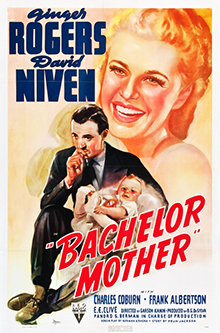
Bachelor Mother (1939) is an American romantic comedy film directed by Garson Kanin, and starring Ginger Rogers, David Niven, and Charles Coburn. The screenplay was written by Norman Krasna from an Academy Award-nominated story by Felix Jackson written for the 1935 Austrian-Hungarian film Little Mother. With a plot full of mistaken identities, Bachelor Mother is a light-hearted treatment of the otherwise serious issues of child abandonment.

William Franklin Holden was an American actor and one of the biggest box-office draws of the 1950s. Holden won the Academy Award for Best Actor for the film Stalag 17 (1953) and the Primetime Emmy Award for Outstanding Lead Actor in a Limited or Anthology Series or Movie for the television miniseries The Blue Knight (1973).
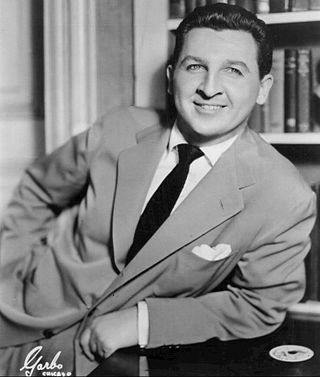
Edward Vincent Bracken was an American actor. Bracken came to Hollywood prominence for his comedic lead performances in the films Hail the Conquering Hero and The Miracle of Morgan's Creek both from 1944, both of which have been preserved by the National Film Registry. During this era, he also had success on Broadway, with performances in plays like Too Many Girls (1940).

Susan Hayward was an American actress best known for her film portrayals of women that were based on true stories.

Smash-Up, the Story of a Woman, also called A Woman Destroyed, is a 1947 American drama film with elements of film noir that tells the story of a rising nightclub singer who marries another singer and becomes an alcoholic after sacrificing her career for him.

I Want to Live! is a 1958 American independent biographical film noir drama film directed by Robert Wise, and starring Susan Hayward, Simon Oakland, Virginia Vincent, and Theodore Bikel. It follows the life of Barbara Graham, a prostitute and habitual criminal, who is convicted of murder and faces capital punishment. The screenplay, written by Nelson Gidding and Don Mankiewicz, was adapted from personal letters written by Graham, in addition to newspaper articles written by Pulitzer Prize-winning journalist Ed Montgomery in the San Francisco Examiner. The film presents a highly fictionalized version of the case, indicating the possibility that Graham may have been innocent.

Owen Moore was an Irish-born American actor, appearing in more than 279 movies spanning from 1908 to 1937.

Lady in the Lake is a 1947 American film noir starring Robert Montgomery, Audrey Totter, Lloyd Nolan, Tom Tully, Leon Ames and Jayne Meadows. An adaptation of the 1943 Raymond Chandler murder mystery The Lady in the Lake, the picture was also Montgomery's directorial debut, and last in either capacity for Metro-Goldwyn-Mayer (MGM) after eighteen years with the studio. Montgomery's use of point-of-view cinematography and its failure was blamed for the end of his career at MGM.

Mrs. Parker and the Vicious Circle is a 1994 American biographical drama film directed by Alan Rudolph from a screenplay written by Rudolph and Randy Sue Coburn. The film stars Jennifer Jason Leigh as writer Dorothy Parker and depicts the members of the Algonquin Round Table, a group of writers, actors and critics who met almost every weekday from 1919 to 1929 at Manhattan's Algonquin Hotel.
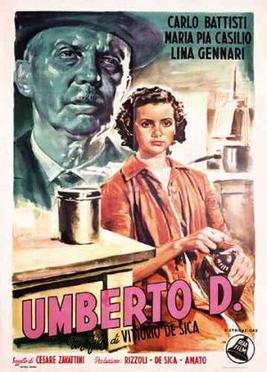
Umberto D. is a 1952 Italian neorealist film directed by Vittorio De Sica. Most of the actors were non-professional, including Carlo Battisti who plays the title role of Umberto Domenico Ferrari, a poor elderly man in Rome who is desperately trying to keep his rented room. His landlady is evicting him and his only true friends, the housemaid and his dog Flike are of no help.

The PJs is an American adult stop motion-animated black sitcom created by Eddie Murphy, Larry Wilmore, and Steve Tompkins for Fox. It portrays life in an urban public housing project. The series starred Eddie Murphy, and it was produced by Imagine Television by Ron Howard and Brian Grazer, The Murphy Company and Will Vinton Studios in association with Touchstone Television, marking the show as Disney's first adult animated series; and Warner Bros. Television. The original run of the series debuted on Fox on January 10, 1999. Two days later, the second episode aired in its regular Tuesday night time slot, following King of the Hill. The series was moved to The WB for its third season and the series ended on May 20, 2001. The title is an abbreviation for "the projects", referring to the show's public housing highrise.

It Could Happen to You is a 1994 American romantic comedy-drama film starring Nicolas Cage and Bridget Fonda. In a plot inspired by a real-life news story, a New York Police Department officer (Cage) who is short on cash and unable to tip his waitress (Fonda), half-jokingly offers to share his winnings if he happens to win the lottery.
The 9th Screen Actors Guild Awards, honoring the best achievements in film and television performances for the year 2002, took place on March 9, 2003. The ceremony was held at the Shrine Exposition Center in Los Angeles, California, and was televised live by TNT.

The Caretakers is a 1963 American drama film starring Robert Stack, Polly Bergen, Diane McBain, Joan Crawford and Janis Paige in a story about a mental hospital.

Witchboard 2: The Devil's Doorway is a 1993 American supernatural horror film written and directed by Kevin Tenney. It stars Ami Dolenz as an artist possessed by a ghost of a former occupant of her new apartment. The film is a sequel to the 1986 film Witchboard, and was followed by Witchboard III: The Possession (1995). It was given a limited theatrical release in the United States on September 10, 1993.

Florence Roberts (March 16, 1861/1864 – June 6, 1940 was an American actress of the stage and in motion pictures.
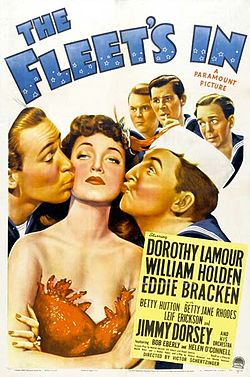
The Fleet's In is a 1942 movie musical produced by Paramount Pictures, directed by Victor Schertzinger, and starring Dorothy Lamour and William Holden. Although sharing the title of the 1928 Paramount film starring Clara Bow and Jack Oakie, it was not a remake. It was actually the second film version of the 1933 Kenyon Nicholson–Charles Robinson stage play Sailor, Beware!, enlivened with songs by Schertzinger and lyricist Johnny Mercer. The score, under the musical direction of Victor Young, includes the popular hits "Tangerine", "Arthur Murray Taught Me Dancing in a Hurry" and "I Remember You".

American Gun is a 2002 drama film written and directed by Alan Jacobs. It stars James Coburn, Virginia Madsen, Barbara Bain and Alexandra Holden.
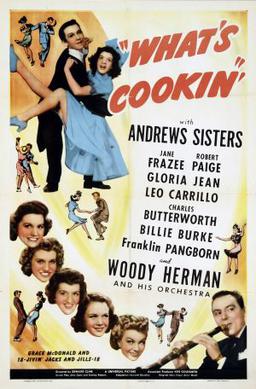
What's Cookin'? is a 1942 American musical film directed by Edward F. Cline and starring The Andrews Sisters, Jane Frazee, Robert Paige and Gloria Jean. The film is based on the story Wake Up and Dream written by Edgar Allan Woolf.
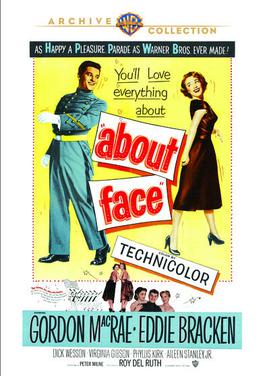
About Face is a 1952 American musical comedy film directed by Roy Del Ruth and starring Gordon MacRae, Eddie Bracken and Virginia Gibson. It was future Oscar winner Joel Grey's film debut. It was produced and distributed by Warner Bros. It is an adaptation of the 1936 play Brother Rat by John Monks Jr. and Fred F. Finklehoffe and a remake of the 1938 film of the same title.



















